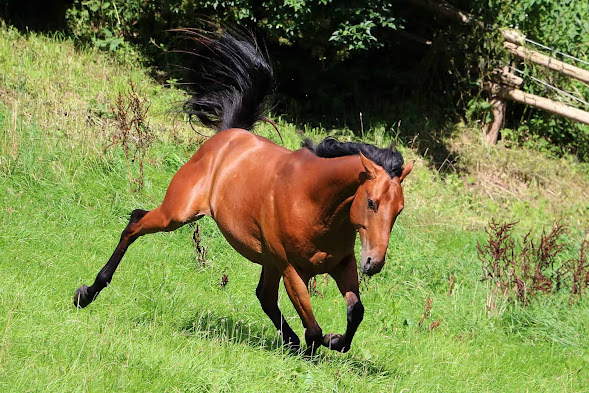Equine Protozoal Myeloencephalitis (EPM)
Equine Protozoal Myeloencephalitis (EPM) is a master of disguise. This serious disease can be difficult to diagnose because its signs often mimic other health problems in the horse and signs can range from mild to severe. Symptoms of this disease include:
Loss of coordination, muscle atrophy, difficulty swallowing, sore back, stumbling, roaring, locking of the stifle joint. Weakness, drooping eyelids, head tilt.
Causes of this disease:
The feces of an animal called an Opossum contains sporocysts and that is how they transmit the disease to horses. Horses with EPM cannot pass it onto other horses.
How to prevent:
Once ingested, the sporocysts migrate from the intestinal tract into the bloodstream and cross the blood/brain barrier. There they begin to attack the horse's central nervous system. The onset of the disease may be slow or sudden. If left undiagnosed and untreated, EPM can cause devastating and lasting neurological damage. Keep your stables (or wherever your horse lives) clean and keep all horse feed stored and not left out.
google.com, pub-8232596071931364, DIRECT, f08c47fec0942fa0




Comments